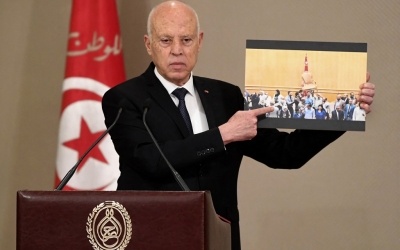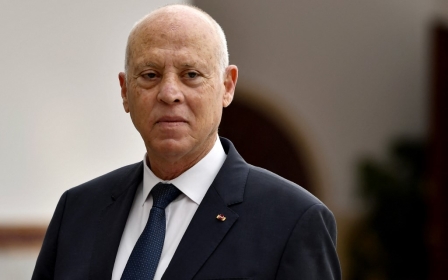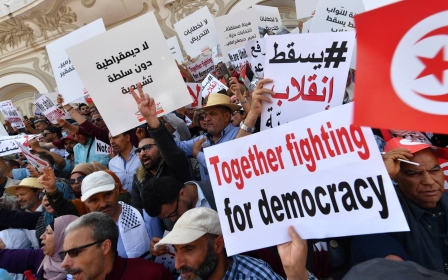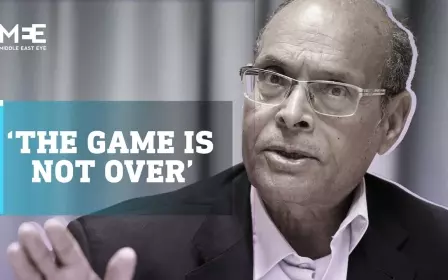Tunisia opposition alliance says Ghannouchi at risk of being detained
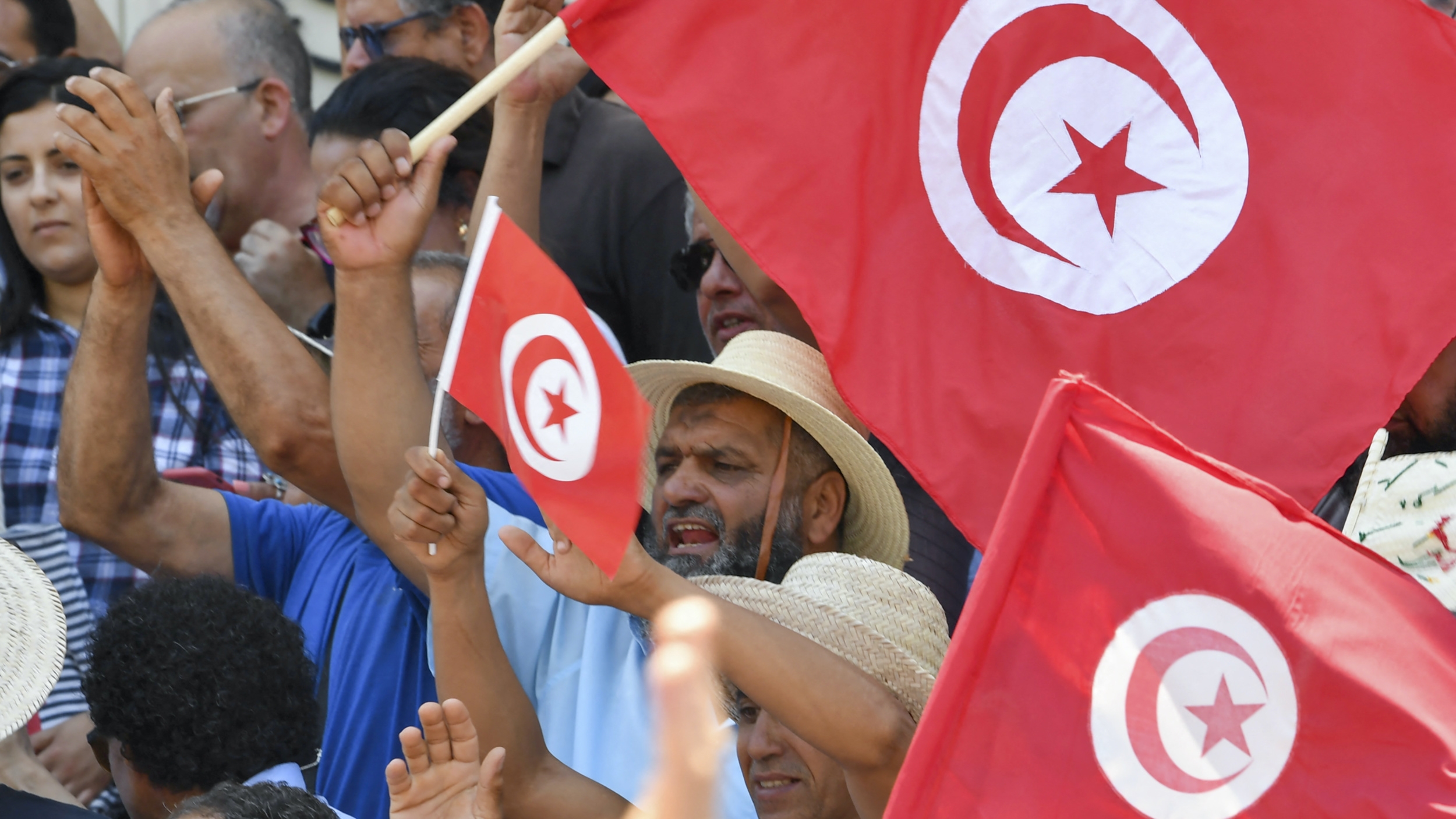
An opposition alliance in Tunisia said on Monday that authorities have plans to detain the former speaker of the dissolved parliament as part of a wider campaign targeting opposition politicians.
Ahmed Nejib Chebbi, leader of the newly formed National Salvation Front, said in a press conference in the capital Tunis that a campaign aimed at repressing high-ranking politicians, most notably the leader of Ennahda, Rached Ghannouchi, will be carried out in the coming days.
'We call on Tunisians to boycott this illegal, unconstitutional process that aims to legitimise a coup d'etat'
- Ahmed Nejib Chebbi, National Salvation Front
Chebbi said that authorities intend to arrest Ghannouchi on 19 July, the day he has been summoned to appear before a judge to answer questions about the terrorism charges brought against him in June.
Ghannouchi, Tunisia's main opposition leader, has become an outspoken critic of President Kais Saied since his power grab last year, in which he dismissed parliament and gave himself wide-ranging powers.
Ennahda has described the allegation against its leader as "distortion and fabrications".
Earlier this month, a Tunisian court froze the financial assets of several opponents of Saied - including Ghannouchi, his son, Moadh, former prime minister Hamadi Jebali, and former foreign minister Rafik Abdessalem - all leading figures in the Ennahda party.
An official on the financial analysis committee, which is headed by the central bank governor, at the time said that the order had come from the anti-terrorism judge.
'Dictatorial regime'
Chebbi on Monday said that authorities have launched media campaigns ahead of Saeid’s referendum on the new draft constitution scheduled for 25 July in preparation for the planned pursuit of opposition political leaders.
"We call on Tunisians to boycott this illegal, unconstitutional process that aims to legitimise a coup d'etat," the veteran opposition figure told AFP on the sidelines of the news conference in Tunis.
Saied has ruled by decree since last summer, increasingly moving towards a "one-man rule" and vowing to remake the political system.
Political parties have rejected calls for a vote on a new constitution, while the head of the panel that oversaw its drafting withdrew his support from it.
The Tunisian jurist who oversaw the drafting of a new constitution, Sadeq Belaid, subsequently withdrew his support and warned on 1 July that the draft had changed into a text that could lead to a "dictatorial regime".
"It has nothing to do with the text we drafted and submitted to the president," he was quoted as saying by Assabah newspaper.
The draft constitution would bring most political power under Saied, giving him ultimate authority over the government and judiciary.
Previously, political power was more directly exercised by parliament, which took the lead role in appointing the government and approving legislation.
The new draft constitution introduces a presidential system of government in a departure from the mixed presidential-parliamentary system enshrined in the 2014 constitution.
Middle East Eye propose une couverture et une analyse indépendantes et incomparables du Moyen-Orient, de l’Afrique du Nord et d’autres régions du monde. Pour en savoir plus sur la reprise de ce contenu et les frais qui s’appliquent, veuillez remplir ce formulaire [en anglais]. Pour en savoir plus sur MEE, cliquez ici [en anglais].


